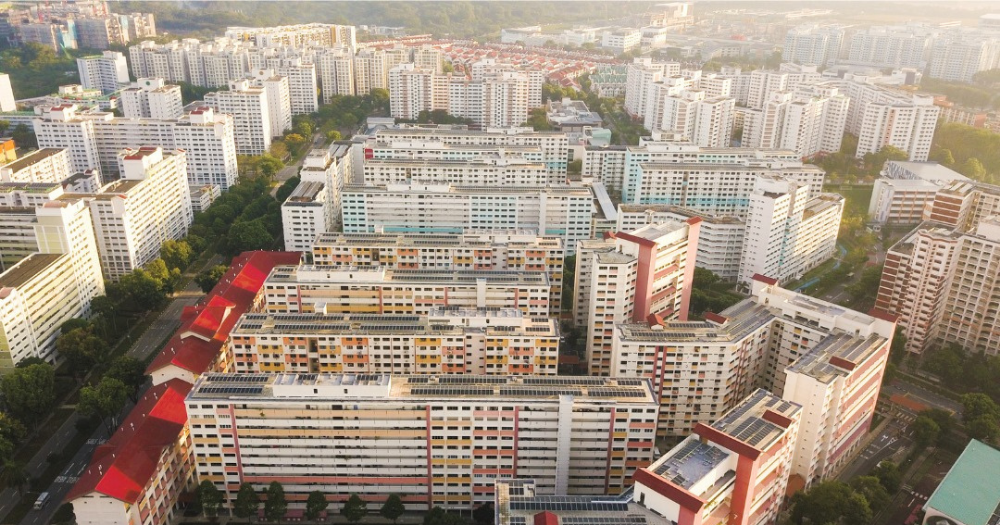Follow us on Telegram for the latest updates: https://t.me/mothershipsg
The Singapore Green Plan 2030 was launched earlier this year in February.
Subsequently, an online survey was conducted on Feb. 18 and Feb. 19 with 500 respondents aged 16 to 34.
The survey findings revealed that around 60 per cent of the respondents are aware of the Green Plan and 75 per cent had a "positive impression" of the Green Plan.
To understand youth sentiments better on the climate actions that Singapore has committed to, four conversations were planned throughout 2021.
One of these conversations, involving 84 youths from various Institutes of Higher Learning (IHLs), organised by the National Youth Council concluded last week (Oct. 26).
The discussion surrounds whether the Singapore Green Plan is bold enough and what more can Singaporeans do?
Minister of State of Ministry of Culture, Community and Youth & Ministry of Trade and Industry, Alvin Tan, was part of the panel of speakers answering questions from the youth participants.
Other speakers include:
- Melissa Low, a Research Fellow at the Energy Studies Institute of National University of Singapore,
- Nor Lastrina Hamid, co-founder of Singapore Youth for Climate Action (SYCA),
- Tricia Seow, Senior Lecturer & Assistant Head of Humanities and Social Studies Education at the National Institute of Education NIE)
- Danielle Zheng, Environment Policy officers from the Ministry of Sustainability and Environment.
Prior to that, participants also had separate discussions in smaller breakout groups.
About having realistic climate goals
A question posed and upvoted by others was: "Singapore is not hitting our climate goals or not setting realistic and feasible goals. How can we push for more urgent targets that makes it attractive for the government to adopt?"
In response, Energy Studies Institute research fellow Melissa Low shared that "Singapore is probably one of the countries in the world that sets the most realistic targets".
As part of the country's long-term low-emission development strategy, Singapore aims to halve peak emissions by 2050 and will aim for net-zero as soon as it is viable.
"Devil is always in the detail," Low added before elaborating that she and other researchers at the Energy Studies Institute have run simulations and economic models to determine Singapore’s energy and decarbonisation pathways. This helps to assess whether Singapore can and will achieve its targets.
This is unlike some countries that have promised net-zero emission targets despite not having any plans on the table.
Low recognised that the main criticism is that Singapore's carbon emission will still be on an increasing trajectory, although at a slower pace.
However, she pointed out the impact that Covid-19 pandemic has on various industries and added that existing sectors in Singapore "have not yet come to the point" where they can transition into lower emission-intensive sectors.
It will take time for Singapore to wean off its reliance on high emitting sectors so the climate targets took into consideration of that and catered some "flexibility".
Minister of State Alvin Tan added that Singapore is moving towards a more sustainable future in a "strategic" manner.
This includes giving businesses time to respond and adjust to carbon taxes for example. Otherwise, it will be as good as "exporting the [emission] problem" overseas if businesses are forced to move out of Singapore due to high carbon taxes.
Citing the recent global energy crisis, Tan also echoed the importance of having that "flexibility" so that Singapore can achieve these climate goals taking into account of our constraints.
Not just the government's responsibility to achieve climate goals
To attain these "realistic" climate goals, or even to go beyond, the responsibility to act cannot solely fall on the government.
According to the poll conducted in February, all youths surveyed indicated that government should be the "most responsible" for achieving the goals set out in the Green Plan, followed by the community, businesses, and the individuals.
Lastrina, who co-leads climate youth group SYCA, said that other stakeholders have to be convinced about the urgency in meeting climate targets.
"Not everything has to be relied on or has to be managed by the government. There are other stakeholders in this whole ecosystem as well. And so in making anything attractive for each of these stakeholders, I think one thing that we need to learn to do is to empathise and to connect with the people who are making these changes.
So for example, instead of sending demand letters, the first thing you can do is to get to know the person in those specific departments and divisions.
Try to understand their work, learn the challenges they're experiencing and see how we can complement and accelerate [their] work. I think that's more important in collectively pushing up for more ambitious targets and that's something that maybe we need to learn how to do better."
Later in the conversation, NIE senior lecturer Tricia Seow also echoed the sentiment that more people have to take ownership on climate issues and recognise that environment issues are part of their lives too.
"I've noticed is that a lot of a lot of people in Singapore seem to see themselves as outside of the environment, and they're not part of the larger ecosystem.
And I think that our green plan would really benefit from educating the general public to understand that they are part of a larger ecosystem and that environmental issues are not something that is extra or divorced from their day to day life and that we need to take into account the welfare of the larger ecosystem for our own sakes. And that is something that really needs to be addressed, I suppose in education as well as, you know, as many platforms as possible."
How youths can contribute to the Green Plan?
Seow highlighted that Singaporean youths can be active players to drive positive change which will lead to achieving the goals in the Green Plan.
According to the February survey, sustainable living is the pillar of the Green Plan that youths are most supportive about.
Using plastic-free advocacy as an example, Seow elaborated on how youths can contribute to this pillar:
"If we are concerned, as a group, about plastics in Singapore, work with advocacy groups to persuade industries to redesign or convince governments to regulate packaging or consumer items.
In the breakout rooms, there were also discussions on how to incentivise citizens to change their consumption habits. These are the things that you can do to make your voices heard by governments and big business. Work together because we are all part of society."
Tan assured participants that their suggestions are well taken.
"All of your suggestions and all of the Green Plan suggestions, which are absolutely spot on, can help us to sharpen the goals maybe even make it bolder as we continue to evolve plans and strategies.
And in fact, our youths play a very crucial role in this because all of you are constantly telling us that environment and sustainability is foremost in your mind."
Tan added that the government is looking at providing more platforms for youths to participate in shaping the Green Plan.
Adding to that, Low also suggested that the government can be more transparent with the data in relation to all pillars of the Green Plan so that Singaporeans can make informed choices.
She also raised the importance to link legislative processes and policy matters to people's daily lives so that more people in Singapore can contribute to the Green Plan.
Top image via MSE/Facebook
If you like what you read, follow us on Facebook, Instagram, Twitter and Telegram to get the latest updates.

